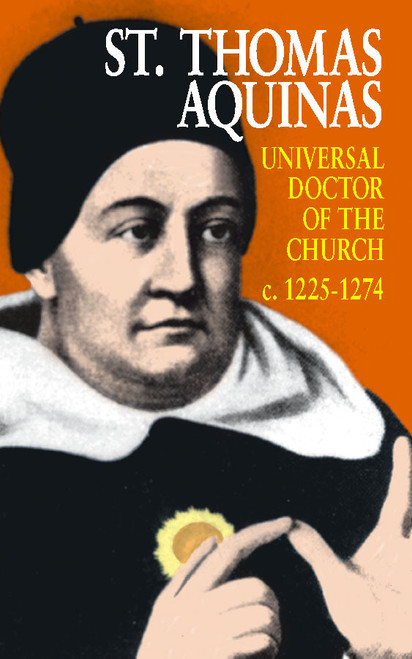From the beginning of time, people have wondered about the meaning of human life. Who are we? Why are we here? What is the point of it all? These questions have eternal significance, and just asking them tends to change the way people live their lives.
But there are even more fundamental questions than these, questions that ask not only about our being, but about being itself. What does it mean for anything to exist? What makes a being a being? How does being differ from nonbeing? And the ultimate question: Why is there something rather than nothing?
Philosophy and the Science of Being
Philosophy, in its traditional form as the love of wisdom and pursuit of truth, strives to answer these ultimate questions. And the branch of philosophy that seeks to do so is metaphysics. Aristotle called it the "science of being" because it is concerned with explaining the fundamental nature of existence itself.
Catholics might ask, why study metaphysics or philosophy? Don't we have the answers to those questions in theology? But as St. Thomas Aquinas shows, revealed theology is the study of God as he is in himself. What Aquinas calls "philosophical theology" or metaphysics, studies God as the cause of being. Metaphysics proves through logical deduction that the existence of the universe requires a First Cause, a Creator, to account for why there is anything at all.
Metaphysics in the Catholic Tradition
Dr. Gregory T. Doolan offers a survey of metaphysics in the Catholic tradition. He discusses these topics and more:
- The distinction between philosophy and theology
- The nature, principles, and causes of being
- The existence of God as the first cause of all being
If you're ready to explore the deepest realities of existence, join Professor Gregory T. Doolan for this philosophical survey of metaphysics.
- What is Metaphysics? Is metaphysics solely a philosophical study? Does studying metaphysics present a lack of faith as a Christian? See some of the most influential people in the development of the study of metaphysics and discover what metaphysics is and how to use it properly.
- The Pre-Socratics and Plato Take a look at the earliest metaphysical observations in philosophy for a historical perspective. Some early philosophers were called the "founders of western philosophy" because they employed a new approach to considering the world. Study these philosophers and their observations to strengthen your faith in the reality of God.
- Aristotle’s Metaphysical Thought See why Aristotle broke away from his teacher, Plato's, teachings on metaphysics. While Aristotle was said to have loved his teacher very much, he loved the truth more. So what was it that Plato lacked in his understanding of these truths that Aristotle was able to discover?
- Neo-Platonism and Early Medieval Philosophy Study the history of metaphysics between the times of Aristotle and St. Thomas Aquinas. While they lacked complete truth in many ways, the Neoplatonists and the early medieval philosophers were some of the most influential in the development of Thomas Aquinas' understanding of metaphysics, which he was later able to apply to theology and the Church.
- Aquinas on the Subject of Metaphysics Discuss St. Thomas Aquinas' account of the subject matter of metaphysics. Aquinas turned what appeared as a solely scientific and philosophical subject into a question of theology by explaining that metaphysics is the study of God as the cause of its sum.
- Aquinas on the Inner Structure of Beings According to St. Thomas Aquinas, beings are composed of two metaphysical principles, which in humans are two separate entities. Study the inner structure of beings and the differences in the nature of humans versus the nature of God.
- Aquinas on Proving God’s Existence Study the arguments for the existence of God composed by St. Thomas Aquinas. Aquinas combines a highly intellectual philosophical and scientific approach and applies it to what is now considered some of the most influential Catholic theology.
- Aquinas on Knowing and Talking About God After considering St. Thomas Aquinas' arguments for the proof of the existence of God, see what remains that we can say we truly know and can say with certainty about God and the nature of the Divine.
Dr. Gregory T. Doolan holds his Doctorate in Philosophy from the Catholic University of America. He currently teaches as an Associate Professor at the Catholic University of America in the School of Philosophy and the Medieval & Byzantine Studies Program.
At Catholic University, he specializes in St. Thomas Aquinas’s metaphysics, addressing such topics as the metaphysics of creation, the divine ideas, and the categories of being. Professor
Doolan previously taught as Assistant Professor of Philosophy at the Dominican House of Studies in Washington, D.C. where his courses included Philosophy of Being, Philosophy of Nature, and Philosophical Ethics.
Professor Doolan is the author of the book Aquinas on the Divine Ideas as Exemplar Causes (Catholic University of America Press, 2008), and recently edited The Science of Being as Being: Metaphysical Investigations (CUA Press, 2011). Apart from his native English, Professor Doolan speaks conversational French and reads German and Latin. His writings are featured in such journals as International Philosophical Quarterly, The Thomist, and Review of Metaphysics. He is a member of the American Catholic Philosophical Association and the American Maritain Association.
Homeschooling Products
The Homeschooling Set includes the Streaming Video and Homeschooling Course Guide. Each Course Guide contains everything needed for a student to complete the course, including:
- Lesson Plan
- Quizzes
- Final Essay
- Lecture Notes
- Answer Key
- Author:
- Gregory T. Doolan, PhD
- Imprint:
- Catholic Courses
- Publication Date:
- 10/24/2012
- Wistia Name:
- CCI: Ultimate Questions, Ultimate Answers
- Wistia Hash:
- cnsb2h3b0w
- Wistia Url:
- https://www.tanbooks.com/cci-ultimate-questions-ultimate-answers/













